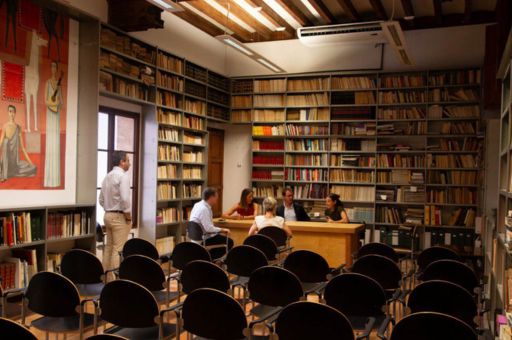The island institution allocates €11,000 to this initiative to highlight the legacy of Ramon Llull as a tool for contemporary reflection.
The Consell de Mallorca is promoting the Llull Laboratory project of the Estudi General Llull ·lià, a cultural association initiative aimed at valuing Ramon Llull’s legacy as a resource for contemporary reflection. On Thursday, the island institution approved the allocation of €11,000 to this project in its plenary session. This year’s project includes a grant for multidisciplinary research on Llull’s work, with the possibility of a three-month artistic residency and a stage proposal in the form of a philosophical lecture.
TDB keeps you informed. Follow us on: Facebook, Twitter and Instagram
The Consell de Mallorca promotes the Llull Laboratory project of the Estudi General Lul·lià
Specifically, the president of the Consell de Mallorca, Llorenç Galmés, and the vice president and councillor for Culture and Heritage, Antònia Roca, visited the headquarters of the Estudi General Lul·lià to learn more about the project. President Llorenç Galmés emphasised that the Consell de Mallorca has the authority to support cultural projects such as the Llull Laboratory, which help preserve and disseminate Mallorca’s cultural heritage. In this regard, he stated that “it is the responsibility of the Consell de Mallorca to promote initiatives like this one that strengthen the island’s identity and culture.” According to Galmés, “Ramon Llull’s legacy is a living heritage that connects us with our identity and inspires us to face today’s challenges with a critical and creative mindset.”
The Llull Laboratory’s 2025 Program comprises two major proposals that integrate research, artistic creation, and contemporary thought, drawing on Llull’s work.
On the one hand, the Llull Lab Grant is announced—an aid aimed at artists or researchers wishing to develop an original project connected to some aspect of Llullian thought. The grant, valued at €6,000, includes the possibility of a three-month artistic residency at the Estudi General Lul·lià. The call will be international and is expected to open at the end of March 2026. The jury will include prominent figures such as philosophy professor Amador Vega and art curator and critic from the Alttra Foundation, Bartomeu Marí. At the end of the residency, the project will be presented publicly.
On the other hand, the program also features the activity Nunc Audite: a stage proposal combining dance and theology. Choreographer Cesc Gelabert uses his body to interpret a series of definitions of God written by Swiss playwright Valère Novarina and recited by actress Laurence Mayor. This interpretation also includes a philosophical reflection by Amador Vega and concludes with a dialogue among the three creators. The piece premiered in October 2024 at the Water Depository of Pompeu Fabra University and is part of the Joan Miró-UPF Foundation Chair. It exemplifies the spirit of the Llull Lab: fostering dialogue between ancient thought and contemporary artistic forms.
Llull Laboratory
The Llull Laboratory is a project created by the Estudi General Lul·lià, a non-profit association rooted in the medieval tradition and committed to promoting social action, research, and culture in Mallorca, as well as the dissemination of Ramon Llull’s legacy.
The initiative, also known as Llull Lab, functions as a space for experimentation, teaching, debate, and dissemination, inspired by Llull’s ideas as a constant source of reflection from a contemporary perspective. The project aims to connect experts in Llull’s work with today’s artists and creators in a shared space of collaboration and idea exchange. This laboratory seeks to explore how Llull’s thinking can inspire new forms of creation and reflection, blending knowledge and creativity.
This space is designed to be accessible to all audiences: from people with academic or technical training to those who simply wish to discover new ideas about European culture and history. There will also be activities for school children, such as workshops, guided tours, and participatory experiences. Ultimately, Llull Lab aspires to be a living and creative space where the legacy of Ramon Llull can be experienced in a contemporary and inclusive way.
